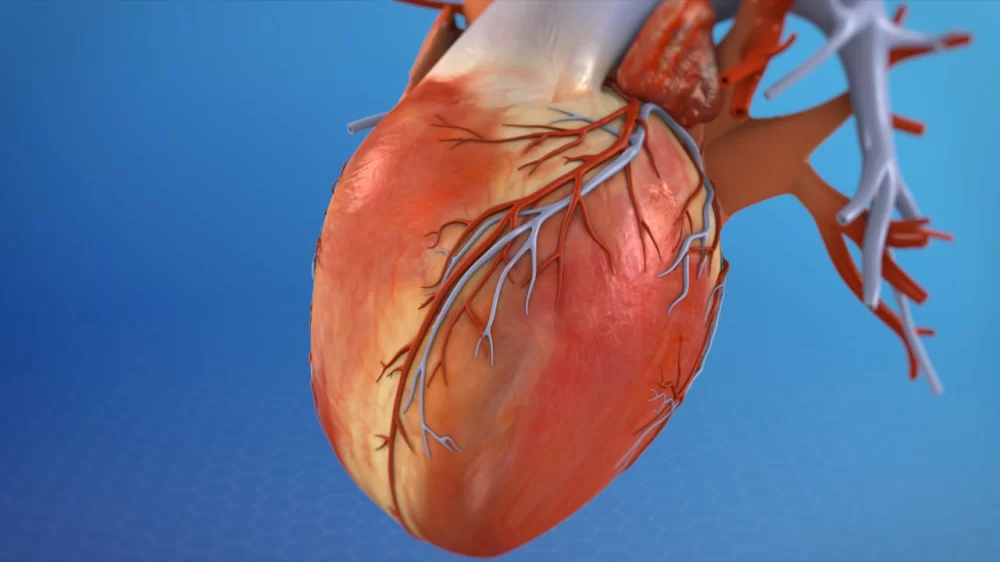What Are Heart Valve Diseases?
Heart valve diseases refer to any condition that affects the valves in your heart, which play a critical role in controlling the flow of blood throughout the heart and to the rest of your body. Your heart has four main valves: the aortic valve, mitral valve, tricuspid valve, and pulmonary valve. These valves open and close in response to the heart's pumping action to ensure blood flows in the correct direction. When any of these valves are damaged, they may not function properly, leading to a range of potential health problems. Heart valve diseases can be serious, but with the right understanding and treatment, they can be managed effectively.

Types of Heart Valve Diseases
There are several types of heart valve diseases, each impacting one or more of the heart's valves. The most common conditions include:
- Valvular Stenosis: This condition occurs when a heart valve becomes narrowed, restricting the flow of blood. This can happen in any of the four heart valves, but it is most common in the aortic valve (aortic stenosis). The narrowing prevents the valve from opening fully, which can lead to increased pressure in the heart.
- Valvular Regurgitation: In this condition, a valve does not close properly, allowing blood to leak backward into the heart. This can occur in the mitral, tricuspid, or aortic valves. Regurgitation causes the heart to work harder, which can lead to further complications over time.
- Mitral Valve Prolapse: This is a condition where the mitral valve bulges backward into the left atrium during contraction, causing improper closure. Though often mild, in some cases, it can lead to significant complications like regurgitation or arrhythmias.
- Endocarditis: This is an infection of the inner lining of the heart chambers and valves, usually caused by bacteria. It can cause the valves to become damaged or infected, leading to further complications.
Symptoms of Heart Valve Diseases
The symptoms of heart valve diseases can vary depending on the type of condition, the valve affected, and the severity of the disease. Some common symptoms to watch for include:
- Shortness of breath, especially during physical activity or while lying down
- Fatigue and feeling excessively tired
- Chest pain or discomfort
- Swelling in the ankles, feet, or abdomen
- Irregular or rapid heartbeat
- Dizziness or fainting spells
- A heart murmur, often detected by a doctor during a routine examination
Causes of Heart Valve Diseases
Heart valve diseases can be caused by a variety of factors, including genetic conditions, infections, or age-related changes. Some of the common causes include:
- Congenital Heart Defects: Some people are born with heart valve problems, such as a malformed valve or valves that are too narrow. These conditions may not cause problems right away but can lead to issues later in life.
- Age-related Changes: As you age, the tissues in your heart valves can become less flexible, leading to conditions like valvular stenosis. This is especially common in the aortic valve.
- Infections: Infections like bacterial endocarditis can damage heart valves. This is more likely to happen in people with weakened immune systems or those with pre-existing heart conditions.
- Rheumatic Fever: This is a complication of strep throat that can cause inflammation in the heart valves, leading to long-term damage. Although rare in developed countries, it is still a concern in certain populations.
- High Blood Pressure: Chronic high blood pressure can put extra stress on the heart and its valves, potentially leading to valvular disease over time.
Diagnosis of Heart Valve Diseases
Early diagnosis is crucial for managing heart valve diseases effectively. Several tests can be used to diagnose these conditions, including:
- Echocardiogram: This is the most common test used to diagnose heart valve diseases. It uses sound waves to create a picture of your heart, allowing doctors to evaluate the structure and function of the valves.
- Electrocardiogram (ECG): This test measures the electrical activity of your heart and can detect irregularities in heart rhythm that may indicate valve problems.
- Chest X-ray: A chest X-ray can show the size and shape of the heart, which can help detect if a heart valve is causing the heart to enlarge.
- Cardiac Catheterization: In some cases, doctors may perform a cardiac catheterization, where a thin tube is inserted into a blood vessel to take pictures and measure pressures inside the heart.
Treating Heart Valve Diseases
Treatment for heart valve diseases depends on the severity of the condition, the specific valve affected, and the overall health of the patient. Treatment options may include:
- Medications: Medications can help manage symptoms such as high blood pressure, irregular heart rhythms, and fluid retention. These may include diuretics, beta-blockers, or anticoagulants.
- Valve Repair or Replacement: In more severe cases, surgery may be required to repair or replace the damaged valve. Valve repair can preserve the original valve, while valve replacement may involve a mechanical or biological valve replacement.
- Minimally Invasive Procedures: Some patients may be candidates for minimally invasive procedures, such as balloon valvuloplasty, which involves inflating a balloon to widen a narrowed valve.
- Lifestyle Changes: Adopting a healthy lifestyle, including regular exercise, a balanced diet, and avoiding smoking, can help improve heart health and manage symptoms of heart valve diseases.
Living with Heart Valve Diseases
While heart valve diseases can be serious, many people with these conditions lead full, active lives. With proper treatment and regular monitoring, it's possible to manage symptoms and reduce the risk of complications. It's important to work closely with your healthcare team to create a treatment plan tailored to your specific condition.
Additionally, making lifestyle changes such as maintaining a healthy weight, managing stress, and exercising regularly can help support heart health and improve your quality of life. If you experience any symptoms or suspect you may have heart valve disease, don’t hesitate to speak with a healthcare provider to get the proper diagnosis and treatment.






















Deborah Heart and Lung Center
deborah heart and lung center
200 Trenton Rd, Browns Mills, NJ 08015, USA